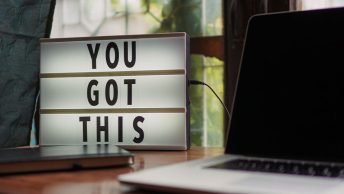Our smartphones are always within reach, and in today’s digital age, many of us can’t function without them. We’re all dealing with this in some way. Lots of us miss the times when life wasn’t all about technology. The issue is, that unplugging might make you feel a bit cut off, especially when you can’t see your friends and family much right now. Wanting to go offline might make you feel like you’re missing out on something.
Our lives are tied to screens, and it’s tough to take a break from our phones, even for a short time. Apps are made to keep you online as much as they can. So, to use technology less, you need to be aware and have a plan.
The reality is, we all need a break from social media and the internet. It’s important to find what we want to connect with instead. In this article, you’ll see tips on how to unplug from Technology and Have Your Personal Time.

1. Tech-Free Zone
You could be surprised by how much you feel the absence of technology when you abruptly cut it off. Try placing your laptop in another room and keep your phone charger there too. This way, when you want to use them, you have to physically go there. It makes things less convenient and might reduce the urge to check them all the time.
2. Switch off email notifications on your phone
The constant buzzing for every email can make you feel like you have to check it. By turning off these notifications, you can check your emails at scheduled times. Consider putting your phone on aeroplane mode for a few hours to avoid constant interruptions and stay focused on your life or enjoy your personal time.
3. Keep an eye on how much time you’re spending online
Facebook, Twitter, and Instagram can eat up your time without you realizing it. We all have the same 24 hours, but some of us seem to handle it better. Ever wondered how much time you spend on your devices? Instead of endless scrolling, consider spending time with friends or doing something productive. Try free apps that track your screen time—they’re super useful. Now, plan when to check emails and social media. Maybe check emails when you start and finish work, and turn off notifications when you’re at home.
4. Don’t Use your Phone at Night
The blue light from our phones and tablets messes with our sleep, making it tough to relax and fall asleep. To tackle this, keep your device on the opposite side of the room so you’re not tempted to check it before bed, during the night, or right after waking up. Steering clear of technology before bedtime improves your sleep quality, overall health, and well-being. Having your phone by your bedside means it’s often the last and first thing you see each day—swap it for an alarm clock instead.
5. Schedule More Activities that don’t Involve Digital Devices
Schedule activities without technology to keep yourself engaged. A trip to the library is a fantastic way to recharge and gain fresh perspectives, as physical books offer a unique allure that eBooks and online reading lack. Consider starting a new hobby to develop your interest in it. Excessive gaming, smartphone use, and TV are associated with increased levels of anxiety and depression, so finding alternative activities can contribute to better mental well-being.
6. Phone-Free Meal Times
During mealtime, give your phones a break and savor the moment. Engaging in conversation without distractions can enhance the enjoyment of your meals and strengthen connections with those around you. Taking this intentional pause from technology promotes a more mindful and satisfying dining experience.
7. Get Rid of Addicting Apps
Say goodbye to apps that eat up your time. Figure out which ones are a bit too addictive or that serve no real purpose and delete them. It’s a simple way to break free from endless scrolling, giving you more time for things that really matter, like spending time with friends or picking up a new hobby.
8. Take a break from tech with a digital detox
Convince a bunch of friends to join your digital detox mission. Turn it into a support group—gather and engage in tech-free activities or chat about the positive changes you’re experiencing. Sharing these experiences strengthens the good vibes and the progress you make in your break from digital overload. Disconnecting from technology means reconnecting with the world and discovering more about ourselves.
9. Try Non-Tech Options
Explore alternatives to using technology in your daily routine. Swap digital tools for hands-on or traditional options to reduce screen time and bring a different vibe to your activities.
10. Limit Your Work Hours
Decide when your workday ends, and once it’s over, take a break from checking emails and messages. Most things can wait until the next day. This way, you can relax and recharge for a fresh start tomorrow.
11. Log Out From Social Media
Instead of deactivating your account, try logging out of social media after each use. Logging into your social media and typing in your username and password each time can be a bit annoying, but it makes you more aware of your actions, helping you use them less.
12. Beat the Social Media Habit
If you find yourself constantly reaching for your phone like so many times, try using apps that block access to social media. For computer or mobile distractions, easily available blocking apps can be a game-changer in boosting productivity. Just search for them.
13. Begin a Meditation Routine
Mindfulness might sound familiar, but it’s important for being in the present moment. Start with a 10-minute daily meditation and gradually extend it. Doing this in the morning sets a positive style for your day, and you’ll notice the benefits over time.
Research supports various health benefits linked to meditation, such as stress reduction, lower anxiety and depression, pain relief, enhanced memory, and increased efficiency.
14. Pay attention to what’s around you
Instead of always looking at your phone, try being aware of what’s around you. Listen to sounds, smell the air, and really see your surroundings. Take a break from your phone when you walk, and pay attention to how you move, what’s around you, and the sounds you hear. It’s surprising how much we miss when we’re stuck on our phones.
Benefits of Disconnecting from Technology
Unplugging from technology offers many benefits that contribute to a healthier lifestyle. Here’s a closer look at why taking a break from technology can be advantageous –
1. Reduced Stress and Anxiety
Disconnecting from constant notifications and digital noise provides a mental break. It allows for a reduction in stress and anxiety levels as you step away from the pressures of constant connectivity.
2. Improved Sleep Quality
Exposure to screens, especially before bedtime, can disrupt sleep patterns due to the blue light emitted as already mentioned earlier. Disconnecting from technology, especially in the evening, promotes better sleep quality and a more restful night.
3. Enhanced Productivity
Breaking away from the constant pull of social media and other digital distractions allows for increased focus and concentration. This, in turn, leads to enhanced productivity in both work and daily life.
4. Strengthened Relations
Spending less time on devices opens up opportunities for meaningful face-to-face interactions. Disconnecting from technology allows for genuine connections with friends, family, and the world around you.
5. Better Physical Health
Constant screen time can contribute to sedentary behaviour. Avoiding it can provide an opportunity to engage in physical activities, promoting better overall health.
Conclusion
Our world is packed with distractions, from smartphones to social media. The constant screen exposure can make focusing challenging, leading to feelings of anxiety and stress.
Unplugging from technology is a journey of small steps for a big payoff—personal time and a more balanced life. From setting boundaries to tech-free activities, each choice adds up. Finding a healthier relationship with technology, not rejecting it. So, log out, try new hobbies, and embrace mindfulness. In these simple changes, you’ll discover the joy of being present and reclaim your time.







